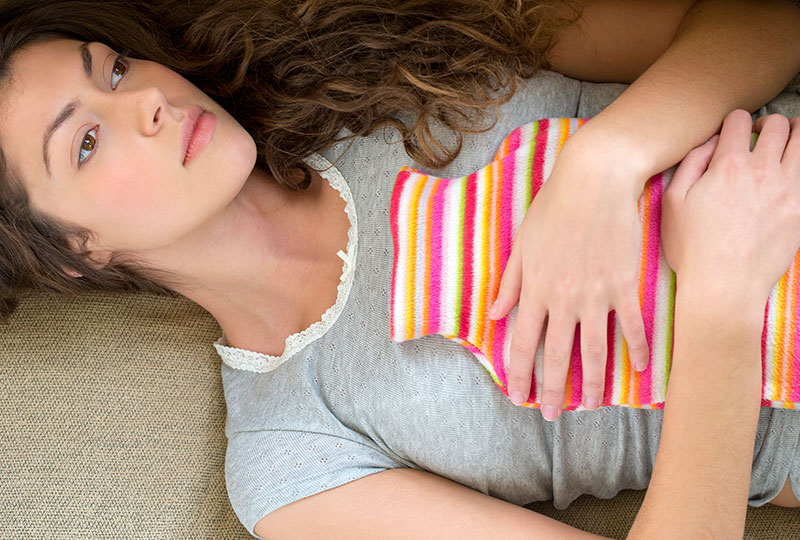Cramping is normal, but if a painful period is keep your daughter from her activities, a doctor’s visit may be necessary.
Periods can be a pain, but menstruation shouldn’t interfere with your tween’s or teen’s life. She shouldn’t be doubled over with cramps and missing out on school, work, sports or fun with friends. Severe menstrual cramps that don’t go away or that occur in between periods might be a sign of something else.
“If your period interferes with anything you want to do, you should talk to your doctor about how you can make it better,” says Mary Romano, M.D., MPH, an assistant professor of pediatrics in the division of Adolescent and Young Adult Health at Monroe Carell Jr. Children’s Hospital at Vanderbilt.
Physical symptoms associated with menstruation
In addition to cramping, girls who experience vomiting, heavy bleeding, uncomfortable digestive changes or headaches in relation to their cycle may want to visit a doctor to find relief or investigate underlying conditions.
“Typically teenagers do not have the same pathology that grown-up women do,” Romano says, “so it is important if you are concerned about a particular condition that may be causing your cramps that you talk to your doctor about it.”
Emotional symptoms associated with menstruation
Some mood changes with menstruation are normal. Hormones fluctuating during the menstrual cycle may play a role, and discomfort can cause irritability. However, if a change in mood persists beyond the duration of a girl’s period, or is severe, that’s cause for concern.
“If mood changes are significant and interfere with the ability to interact with friends and family, then it would be appropriate to discuss with your doctor,” Romano explains.
Cramps may develop over time
Girls may not have cramps when they first start their periods, and instead may develop them as they get older. For most girls, the first one to two years of the menstrual cycle are anovulatory, meaning the body is not consistently making an egg every month, Romano says.
Cramps occur as a result of the chemical that an egg makes as it is disintegrating. “It is not until your body is ovulating monthly that you will consistently have cramps with your period,” Romano explains. “It does not mean that you have developed a problem; it means your hormones have matured.”
Ways to relieve cramps
“Ibuprofen-like medications when taken with food are usually most effective for relieving menstrual cramps,” Romano says. “These medications work best when taken before severe pain occurs, and so being aware of your cramps as they are starting is very important.”
A doctor can help your daughter determine a medication schedule or prescribe different medications if needed. Alternatively, a doctor may suggest hormonal contraception to control the cramping that accompanies painful periods.
“Because most forms of hormonal contraception prevent your body from making an egg each month, your body does not make the hormone that causes cramps and the other symptoms that can be bothersome about your periods,” Romano explains.

